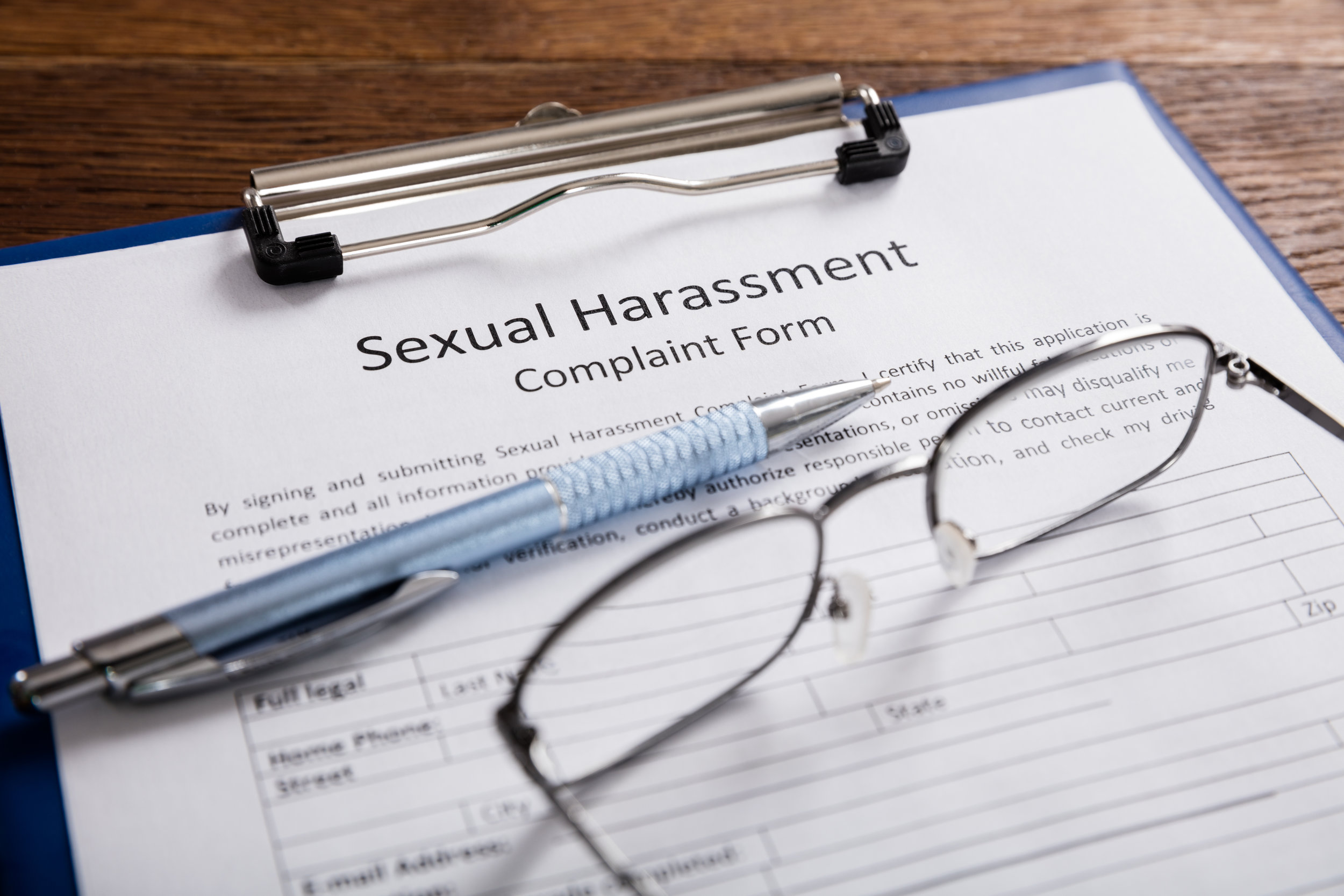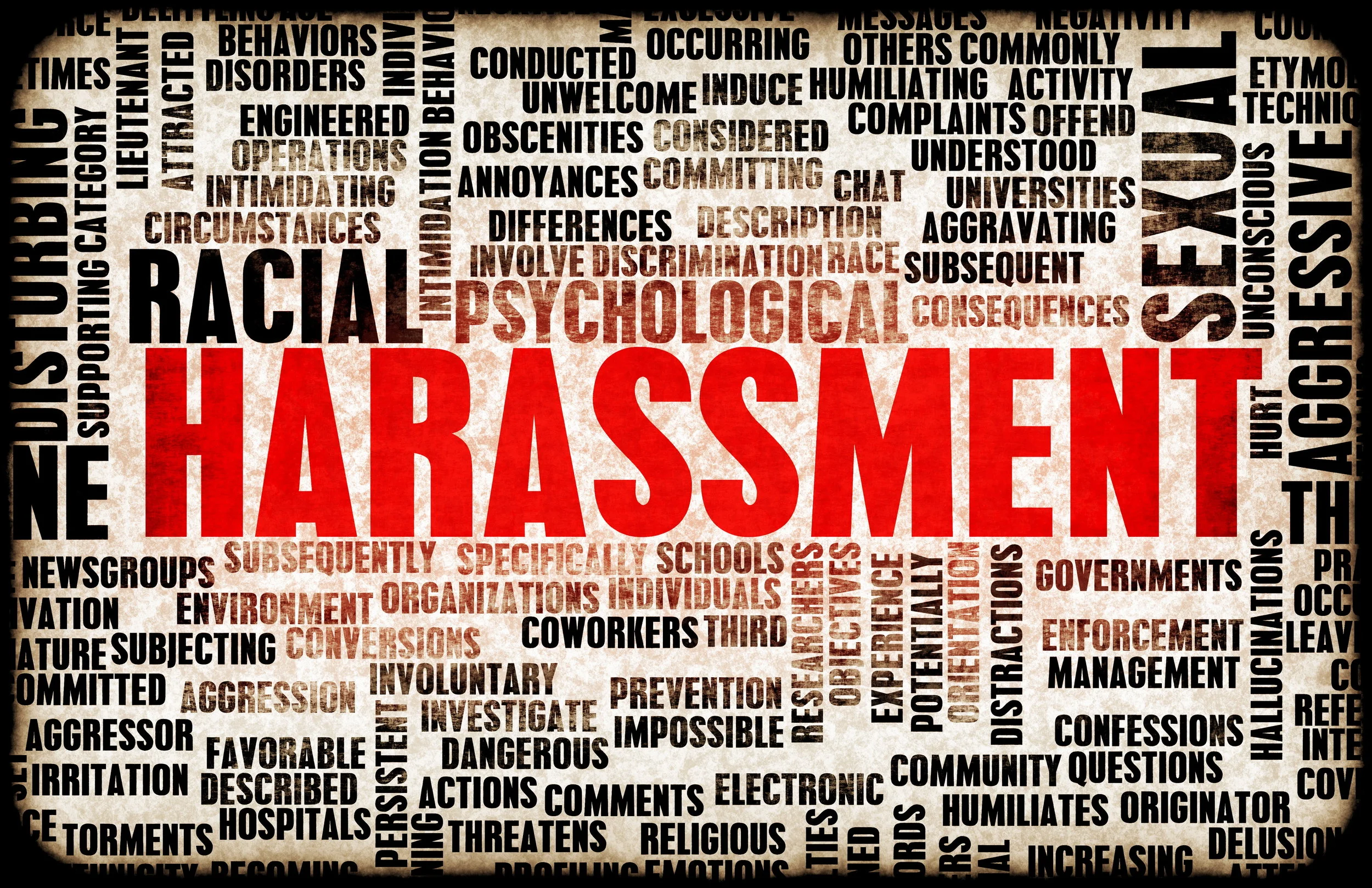
Industry News

Employers Prepare As Reports of Sexual Harassment Spike
Author, Alyssa Burley, Media Communications and Client Services Manager, Rancho Mesa Insurance Services, Inc.
Americans are all too familiar with the #MeToo movement that has shed light on sexual harassment in the workplace. Outspoken celebrities and prominent public figures have brought this topic to the forefront in the media. With all the publicity surrounding sexual harassment allegations, people are empowered to speak out and report unwanted behaviors in the workplace. This leaves many employers asking what they can do to prevent harassment and prepare for possible harassment allegations.
Editor’s Note: This article was originally published on June 27, 2019 and has been updated for accuracy on September 12, 2019.
Author, Alyssa Burley, Media Communications and Client Services Manager, Rancho Mesa Insurance Services, Inc.
Americans are all too familiar with the #MeToo movement that has shed light on sexual harassment in the workplace. Outspoken celebrities and prominent public figures have brought this topic to the forefront in the media. With all the publicity surrounding sexual harassment allegations, people are empowered to speak out and report unwanted behaviors in the workplace. This leaves many employers asking what they can do to prevent harassment and prepare for possible harassment allegations.
Charges Alleging Sexual Harassment FY 2010 - FY 2018
- Reports
- Reports
The United States Equal Employment Opportunity Commission (EEOC) released its “Charges Alleging Sexual Harassment FY 2010 - FY 2018” report. The data shows from 2010 to 2017 reports of alleged sexual harassment incidents actually declined 15.7%, over the seven-year span. However, based on the data, it is difficult to know if incidents of sexual harassment declined or just the reporting of incidents declined.
However, during 2018 there was an increase of 13.6% in alleged sexual harassment incidents, which accounted for over 7,600 claims at a cost of $56.6 million dollars in damages.
| Year | 2010 | 2011 | 2012 | 2013 | 2014 | 2015 | 2016 | 2017 | 2018 |
|---|---|---|---|---|---|---|---|---|---|
| Percentage Change Over Previous Year Number of Charges |
NA 7,944 |
-1.4% 7,809 |
-3% 7,571 |
-4.2% 7,256 |
-5.7% 6,862 |
-0.6% 6,822 |
-0.9% 6,758 |
-0.9% 6,696 |
13.6% 7,609 |
| Percentage Change Over Previous Year Damages (In Millions) |
NA $41.2 |
9.5% $45.1 |
-4.7% $43 |
3.7% $44.6 |
-21.5% $35 |
31.4% $46 |
-11.5% $40.7 |
13.8% $46.3 |
22.2% $56.6 |
EEOC. Charges Alleging Sexual Harassment FY 2010 - FY 2018. https://www.eeoc.gov/eeoc/statistics/enforcement/sexual_harassment_new.cfm.
California’s Senate Bill 1343 (SB 1343) now requires employers with 5 or more employees to provide 2-hour Anti-Harassment training to supervisors and 1-hour training to employees, every two years. As part of this new requirement, the initial training must be completed for all employees and supervisors by January 1, 2021, according to Senate Bill 778, approved on August 30, 2019, which extends the training due date. The changes made by SB 778 not only extends the due date to January 1, 2021, but also addresses concerns about supervisory employees and clarifies when temporary workers must be trained. Read about the changes here.
It’s our belief that as more people are trained to recognize harassment in its many forms, we expect to see the number of reported alleged harassment incidents increase in the coming years. So, what should California employers do to mitigate this increased risk?
Course of Action
For employers, the best course of action is two-fold. Make sure you are compliant by training your employees and supervisors; second, make sure you have Employment Practices Liability Insurance (EPLI) as part of your risk management portfolio.
Training Supervisors and Employees
Understanding the confusion, time and financial burden SB 1343 puts on all California employers, Rancho Mesa offers its clients SB 1343-compliant free online supervisor and employee Anti-Harassment training. Supervisor and employee trainings can be completed 100% online via a computer, tablet or mobile device.
California employers who are not clients of Rancho Mesa can find this training through 3rd party vendors that work in the Human Resource arena and will need to contract with them directly to meet this requirement.
Employment Practices Liability Insurance (EPLI)
EPLI is “a type of liability insurance covering wrongful acts arising from the employment process. The most frequent types of claims covered under such policies include: wrongful termination, discrimination, sexual harassment, and retaliation,” according to the International Risk Management Institute, Inc.
If your organization currently does not have EPLI, or you are unsure about what is covered in your policy, we recommend you contact your insurance broker or call us to get clarification. With the projected increase in these types of claims, not having this vital coverage in place could expose your company to severe negative financial impacts.
Whether the increase in reported alleged sexual harassment incidents is a result of more incidents or simply more people feeling comfortable reporting the harassment, every employer should be prepared to properly train their employees and supervisors, while actively working to prevent and stop all forms of harassment in the workplace.
Contact the Rancho Mesa Insurance Services Client Services Department at (619) 438-6869 or aburley@ranchomesa.com for more information about free anti-harassment training for supervisors and employees, or learn more through our other articles on the topic.
Alyssa Burley is NOT a licensed insurance professional. Informational statements regarding insurance coverage are for general description purposes only. Contact a licensed insurance professional for specific questions.
California SB 1343 Expands Sexual Harassment and Abusive Conduct Prevention Training Requirements
Author, Alyssa Burley, Client Services Coordinator, Rancho Mesa Insurance Services, Inc.
In September 2018, former California Governor Jerry Brown approved Senate Bill 1343 (SB 1343) which expands the requirements for Sexual Harassment and Abusive Conduct Prevention training within the workplace.
Editor’s Note: This article was originally published on January 17, 2019 and has been updated for accuracy on September 12, 2019.
Author, Alyssa Burley, Client Services Coordinator, Rancho Mesa Insurance Services, Inc.
In September 2018, former California Governor Jerry Brown approved Senate Bill 1343 (SB 1343) which expands the requirements for Sexual Harassment and Abusive Conduct Prevention training within the workplace.
New Requirements
Prior to SB 1343, California Assembly Bill 1825, Assembly Bill 2053, and State Bill 396, required employers with 50 or more employees to provide supervisors with sexual harassment and abusive conduct prevention training every two years. SB 1343 drops the minimum number of employees to 5 and adds a requirement for training nonsupervisory employees.
According to Senate Bill 778, passed on August 30, 2019 which expands the training deadline, “By January 1, 2021, an employer having five or more employees shall provide at least two hours of classroom or other effective interactive training and education regarding sexual harassment to all supervisory employees and at least one hour of classroom or other effective interactive training and education regarding sexual harassment to all nonsupervisory employees in California. Thereafter, each employer covered by this section shall provide sexual harassment training and education to each employee in California once every two years.”
The changes made by SB 778 not only extends the due date to January 1, 2021, but also addresses concerns about supervisory employees and clarifies when temporary workers must be trained. Read about the changes here.
Providing Training
The bills also requires the California Department of Fair Employment and Housing (DFEH), “develop or obtain two online training courses on the prevention of sexual harassment in the workplace. The course for nonsupervisory employees shall be one hour in length and the course for supervisory employees shall be two hours in length.” The department “expects to have such trainings available by late 2019,” according to a document provided by the DFEH. The online trainings are expected to be free for employers.
“In the interim period, DFEH is offering a sexual harassment and abusive conduct prevention toolkit, including a sample sexual harassment and abusive conduct prevention training. Employers may use the training in conjunction with an eligible trainer to provide sexual harassment and abusive conduct prevention training,” according to the DFEH.
An eligible trainer qualified to conduct this training would be:
Attorneys who have been members of the bar of any state for at least two years and whose practice includes employment law under the Fair Employment and Housing Act or Title VII of the federal Civil Rights Act of 1964;
Human resource professionals or harassment prevention consultants with at least two years of practical experience in:
Designing or conducting training on discrimination, retaliation, and sexual harassment prevention;
Responding to sexual harassment or other discrimination complaints;
Investigating sexual harassment complaints; or
Advising employers or employees about discrimination, retaliation, and sexual harassment prevention.
Law school, college, or university instructors with a post-graduate degree or California teaching credential and either 20 hours of instruction about employment law under the FEHA or Title VII.
Note, DFEH does not issue licenses nor certificates validating a person’s qualifications to teach sexual harassment prevention training classes.
Other training options include the online Anti-Harassment training Rancho Mesa offers to all of its clients’ supervisors and employees throughout the country in response to California’s Senate Bill 1343 (SB 1343) and Senate Bill 1300 (SB 1300).
We also can recommend Equal Parts Consulting to provide in-person supervisor and/or employee training to those in San Diego and Orange Counties. To receive a discounted rate, please let them know you are a Rancho Mesa Insurance client.
Rancho Mesa Insurance will continue to monitor training options as they become available.
For questions about this training requirement or to learn how to enroll your supervisors and employees, register for the “How to Enroll Supervisors and Employees in the Online Anti-Harassment Training” webinar or contact Rancho Mesa’s Client Services Department at (619) 438-6869.
Resources
California Department of Fair Employment and Housing. "Sexual Harassment and Abusive Conduct Prevenetion Training Information for Employers.”
https://www.dfeh.ca.gov/wp-content/uploads/sites/32/2018/12/SB_1343_FAQs.pdf
California Department of Fair Employment and Housing. “Sexual Harassment FAQs.”
https://www.dfeh.ca.gov/resources/frequently-asked-questions/employment-faqs/sexual-harassment-faqs/
California SB 1343 Expands Sexual Harassment Training Requirements
Author, Alyssa Burley, Client Services Coordinator, Rancho Mesa Insurance Services, Inc,
On September 30, 2018, California Governor Jerry Brown, approved Senate Bill 1343 (SB 1343), which expands rules for required sexual harassment prevention training for businesses.
Currently, employers with 50 or more employees must provide supervisors with sexual harassment prevention training every two years. By January 1, 2020, employers with 5 more employees must provide at least 2 hours of sexual harassment prevention training and at least 1 hour of training to non-supervisory employees. The trainings are required every 2 years.
Editor’s Note: This article was originally published on November 15, 2018 and has been updated for accuracy on September 12, 2019.
Author, Alyssa Burley, Client Services Coordinator, Rancho Mesa Insurance Services, Inc,
On September 30, 2018, California Governor Jerry Brown, approved Senate Bill 1343 (SB 1343), which expands rules for required sexual harassment prevention training for businesses.
According to the passing of Senate Bill 778, approved on August 30, 2019, by January 1, 2021, employers with 5 more employees must provide at least 2 hours of sexual harassment prevention training and at least 1 hour of training to non-supervisory employees every 2 years.
The bill requires “the Department of Fair Employment and Housing (DFEH) to develop or obtain 1-hour and 2-hour online training courses on the prevention of sexual harassment in the workplace, as specified, and to post the courses on the department’s Internet Web site. The bill also requires the department to make existing informational posters and fact sheets, as well as the online training courses regarding sexual harassment prevention, available to employers and to members of the public in specified alternate languages on the department’s Internet Web site.” However, the DFEH currently does not have the required training materials available, as of yet.
Rancho Mesa offers free Anti-Harassment training to all of its clients’ supervisors and employees throughout the country in response to California’s Senate Bill 1343 (SB 1343) and Senate Bill 1300 (SB 1300). The deadline for this training is January 1, 2021, according to Senate Bill 778.
Until the DFEH releases its supervisor and employee sexual harassment prevention trainings, Rancho Mesa recommends devising a training schedule/plan for your supervisors and employees in order to meet the January 1, 2021 deadline.
Resources:
legislature.ca.gov: SB-1343 Employers: sexual harassment training: requirements
legislature.ca.gov: SB-778 Employers: sexual harassment training: requirements
For questions about this training requirement or to learn how to enroll your supervisors and employees, register for the “How to Enroll Supervisors and Employees in the Online Anti-Harassment Training” webinar or contact Rancho Mesa’s Client Services Department at (619) 438-6869.
Important Reminder for Janitorial Business Owners: Property Service Worker Protection Act
Author, Jeremy Hoolihan, Account Executive, Construction Group, Rancho Mesa Insurance Services, Inc.
A few of my janitorial clients have recently asked for information on the Property Service Worker Protection Act (AB 1978) and its requirements. Below is a description of the law and instructions on registering. As a reminder, the deadline for all janitorial service providers to register for the Property Service Worker Protection Act was October 1, 2018. If you have not yet registered, I would recommend doing so, as soon as possible.
Author, Jeremy Hoolihan, Account Executive, Construction Group, Rancho Mesa Insurance Services, Inc.
A few of my janitorial clients have recently asked for information on the Property Service Worker Protection Act (AB 1978) and its requirements. Below is a description of the law and instructions on registering. As a reminder, the deadline for all janitorial service providers to register for the Property Service Worker Protection Act was October 1, 2018. If you have not yet registered, I would recommend doing so, as soon as possible.
AB 1978 is a law to protect janitors against wage theft and sexual harassment. The law is designed to move the janitorial industry into a modern and transparent industry. There are three main legal mechanisms: record keeping, registration with the Labor Commissioner’s Office, and sexual harassment prevention training.
Recordkeeping
Every employer must keep the following accurate records for three years, showing all of the following:
The names and addresses of all employees who perform janitorial or cleaning services.
The hours worked daily by each employee, including the start and stop times of each work period.
The wage and hourly rate paid each payroll period.
The age of all minor employees.
Any other conditions of employment.
Registration
Every employer who provides janitorial services with a least one employee and one janitor must register with the Labor Commission. An “employer” is broadly defined as any person or entity that employs at least one employee and one or more covered workers and that enters into contracts, subcontracts, or franchise arrangements to provide janitorial services must register yearly with the Labor Commissioner’s office.
To register, an employer must pay a $500 nonrefundable application fee. The registration is valid for one year and must be renewed annually by the month and day of the original registration’s issuance. The renewal fee is also $500. A janitorial employer who fails to register is subject to a civil fine of $100 for each calendar day that the employer is unregistered, not to exceed $10,000.
The documents required to register include:
Fictitious Business Name Statement(s) (doing business as (DBA) for all business name(s) you use or intend to use.
State Employer Identification Number (SEIN) or application for it.
Federal Employer Identification Number (FEIN) or application for it.
Articles of Incorporation, if you are a corporation.
Articles of Organization, if you are a limited liability company (LLC).
Certificate of Limited Partnership, if you are a limited partnership.
Secretary of State Statement of Information, if you are a corporation or LLC.
Proof of workers’ compensation coverage via one of the following:
A valid workers’ compensation insurance certificate which must include the complete and correct name of the legal entity that is the insured employer, including fictitious business names and the complete and correct address for each location.
Certificate of authority to self-insure.
If contracting with an employee leasing company, a current workers’ compensation insurance certificate that is provided to you by the employee leasing company.
Sexual Harassment Prevention Training
The Property Service Workers Protection Act requires janitorial services employers to provide training in the prevention of sexual violence and harassment at least once every two years.
Until the training requirements are established pursuant to Labor Code section 1429.5, employers may meet this obligation by giving employees the Department of Fair Employment and Housing pamphlet DFEH–185, “Sexual Harassment,” in English or Spanish, as appropriate.
Rancho Mesa clients have access to discounted Sexual Harassment Prevention training online in both English and Spanish through the Risk Management Center. Contact Alyssa Burley at (619) 438-6869 for more information.
For more information about the Property Service Workers Protection Act, visit the Department of Industrial Relations website.




